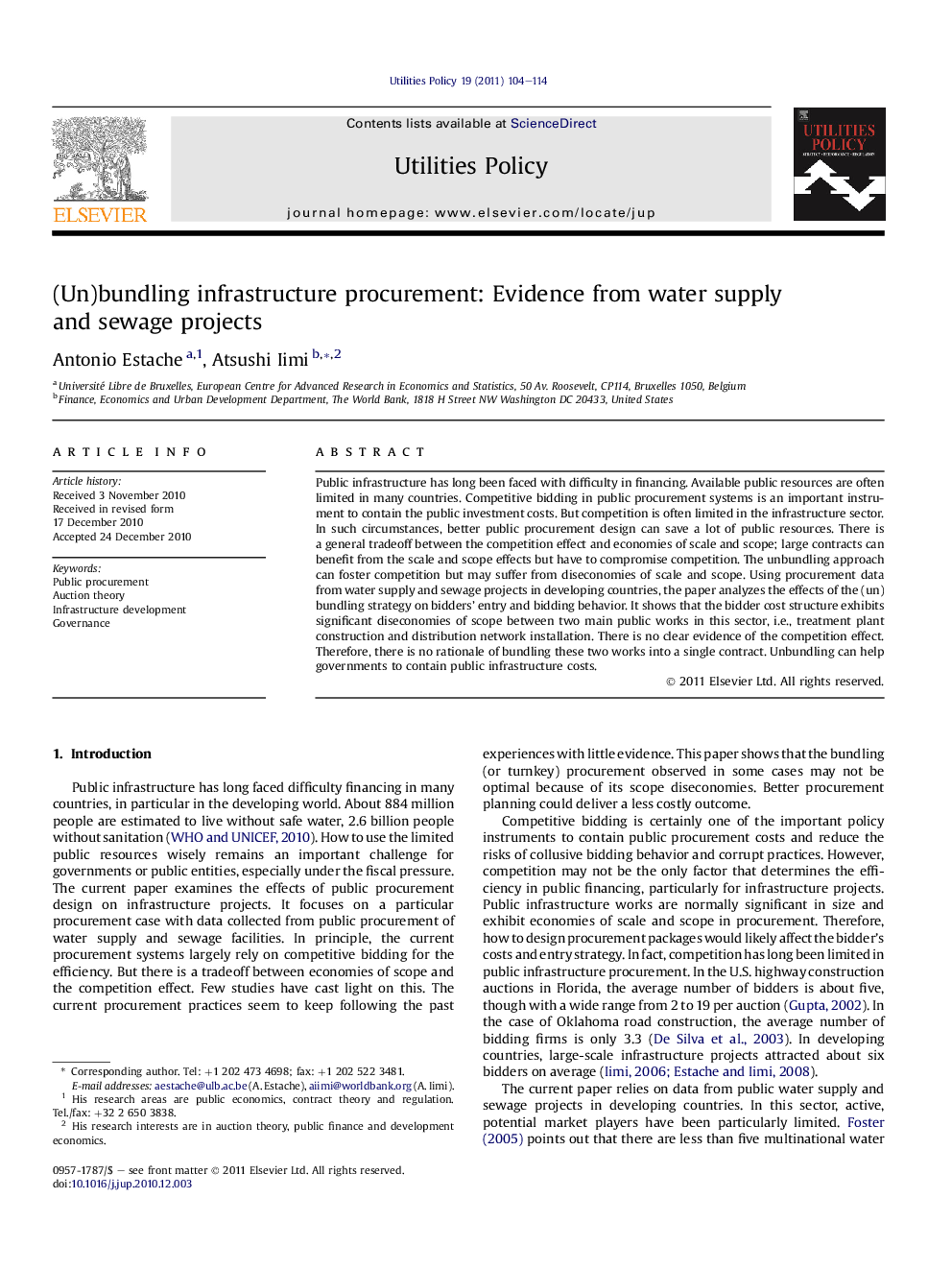| Article ID | Journal | Published Year | Pages | File Type |
|---|---|---|---|---|
| 1001132 | Utilities Policy | 2011 | 11 Pages |
Public infrastructure has long been faced with difficulty in financing. Available public resources are often limited in many countries. Competitive bidding in public procurement systems is an important instrument to contain the public investment costs. But competition is often limited in the infrastructure sector. In such circumstances, better public procurement design can save a lot of public resources. There is a general tradeoff between the competition effect and economies of scale and scope; large contracts can benefit from the scale and scope effects but have to compromise competition. The unbundling approach can foster competition but may suffer from diseconomies of scale and scope. Using procurement data from water supply and sewage projects in developing countries, the paper analyzes the effects of the (un)bundling strategy on bidders’ entry and bidding behavior. It shows that the bidder cost structure exhibits significant diseconomies of scope between two main public works in this sector, i.e., treatment plant construction and distribution network installation. There is no clear evidence of the competition effect. Therefore, there is no rationale of bundling these two works into a single contract. Unbundling can help governments to contain public infrastructure costs.
► About 884 million people live without safe water, 2.6 billion people without sanitation. ► Yet, available public resources are often limited in many countries. ► Better procurement planning can save a lot of public resources. ► It is shown that the bundled procurement approach is costly in water supply and sewage projects. ► Unbundling can help governments to contain public infrastructure costs.
